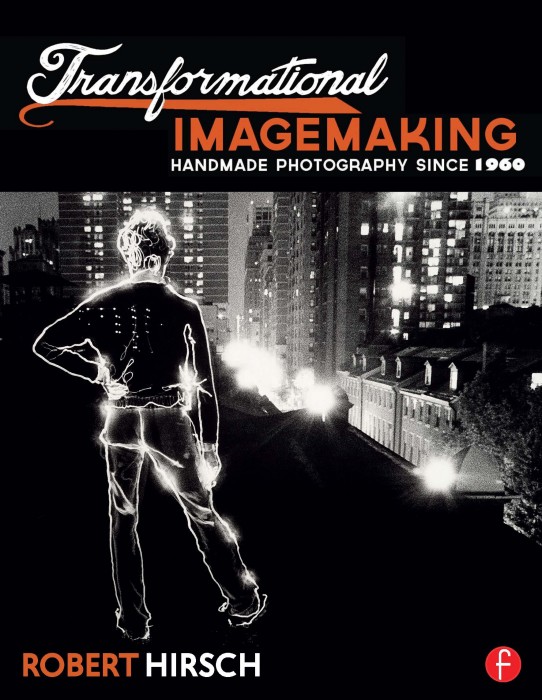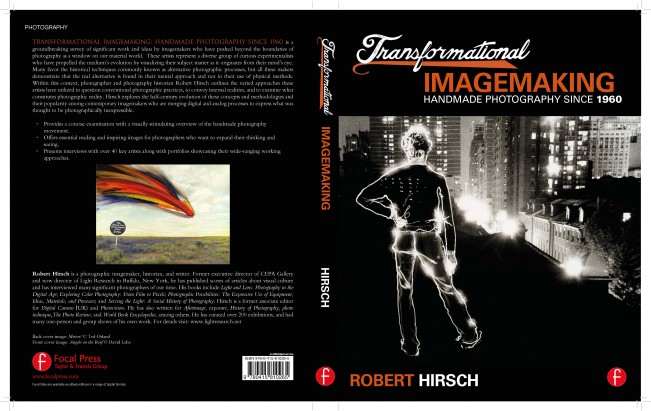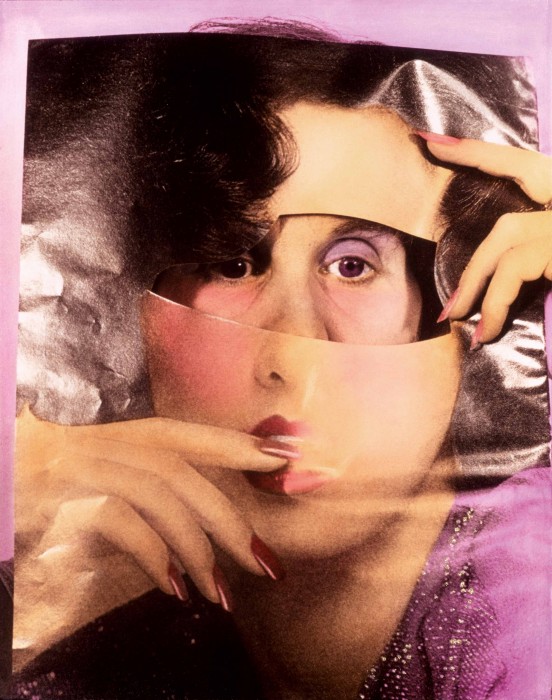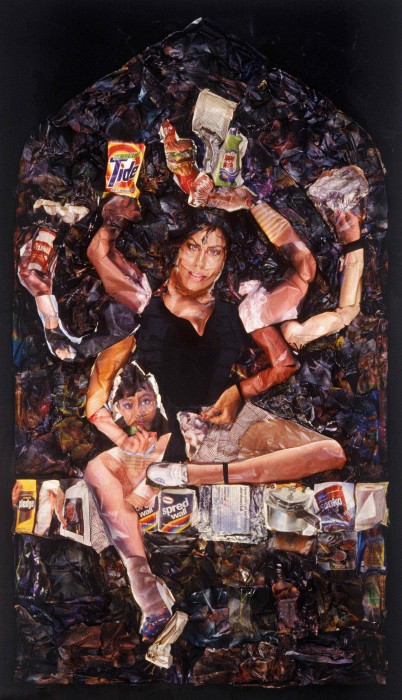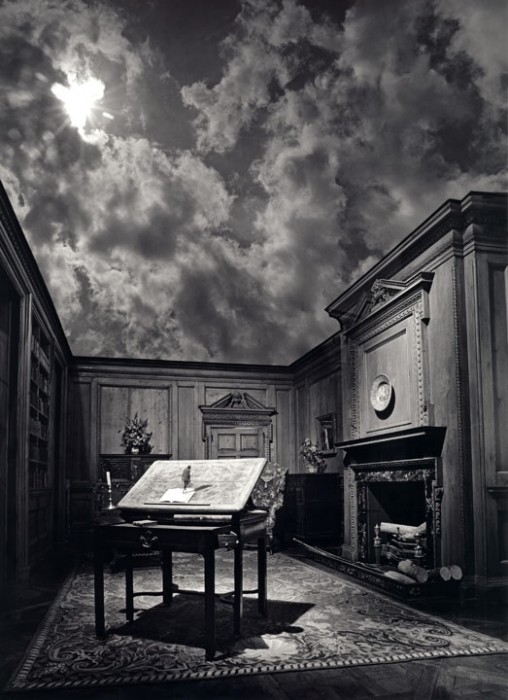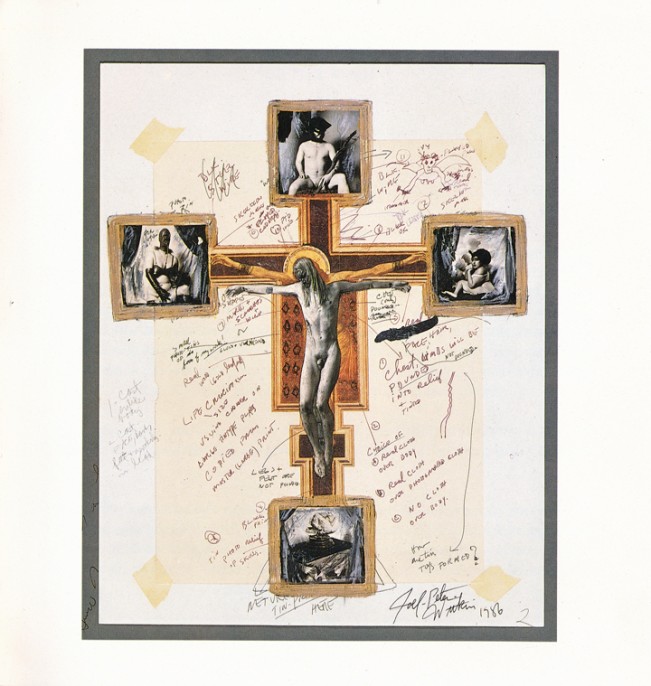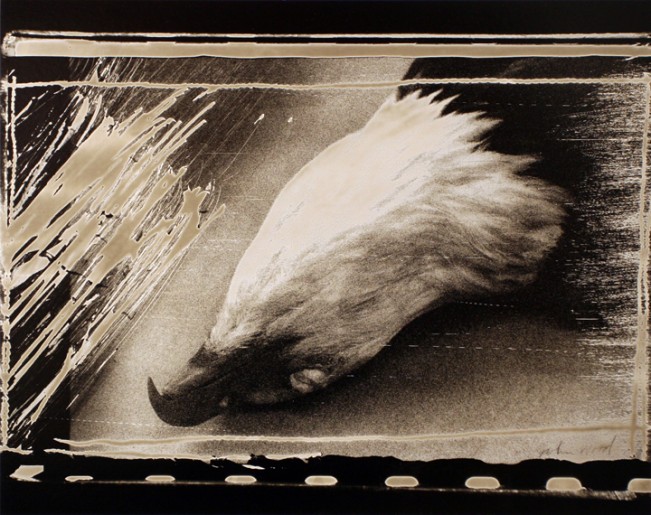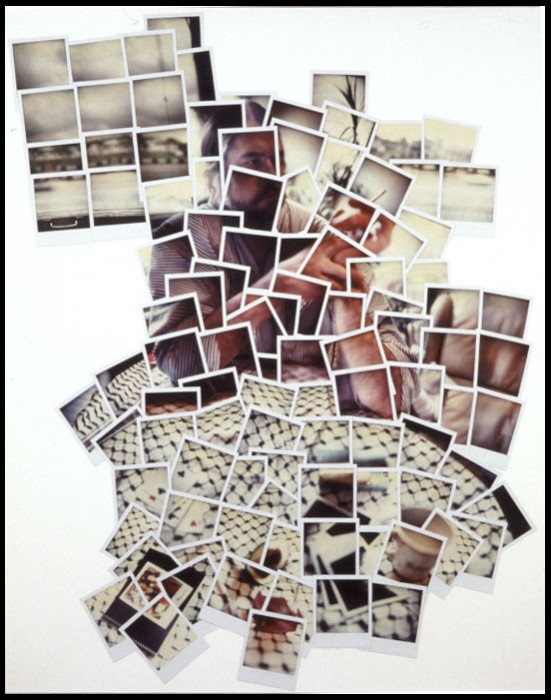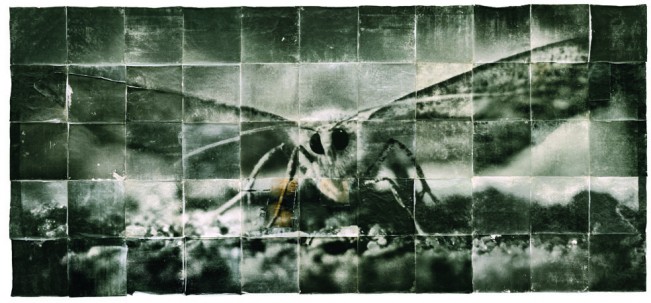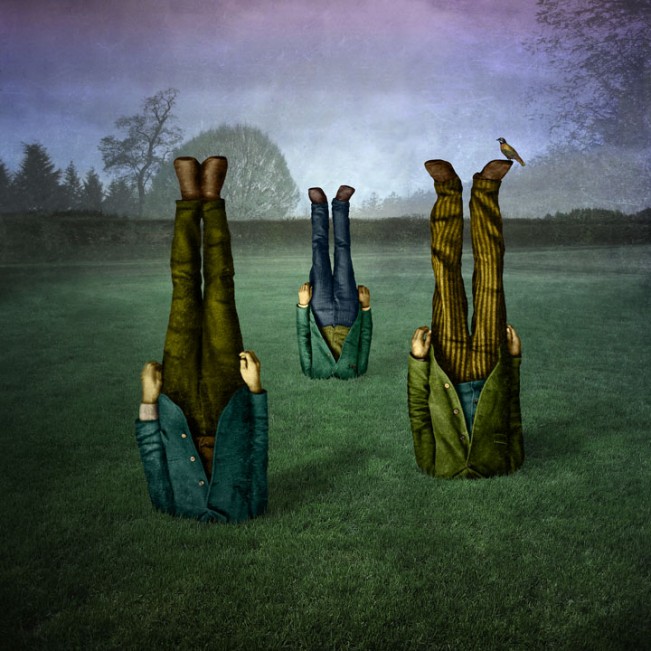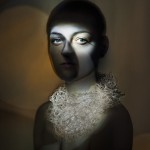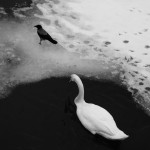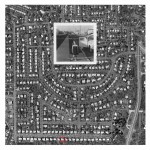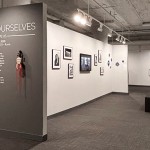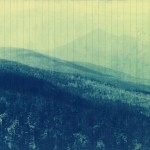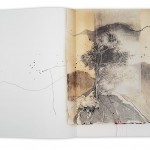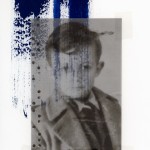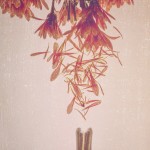Robert Hirsch: Transformational Imagemaking
We constantly tend to misuse or misunderstand the term reality in relation to photographs. The photograph itself is the only thing that is real.
The photographer’s vision convinces us to the degree that the photographer hides his hand.
John Szarkowski
The Photographer’s Eye
I am thrilled to share a fantastic new book by Robert Hirsch, Transformational Imagemaking: Handmade Photograph Since 1960. Transformational Imagemaking has been published by Taylor & Francis’s Focal Press and it is a wonderful examination of artists who “who have pushed beyond the boundaries of photography as a window on our material world. These artists represent a diverse group of curious experimentalists who have propelled the medium’s evolution by visualizing their subject matter as it originates from their mind’s eye. Many favor the historical techniques commonly known as alternative photographic processes, but all these makers demonstrate that the real alternative is found in their mental approach and not in their use of physical methods.”
There will be a major exhibition based on the book that will open at the CEPA Gallery in Buffalo, New York.
Transformational Imagemaking: Handmade Photograph Since 1960
An Exhibition Curated by Robert Hirsch
Photographs and Materials can not be reproduced in any form without written permission
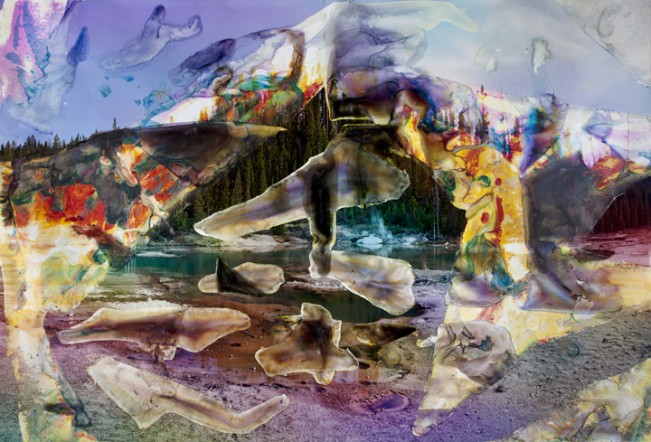
© Matthew Brandt. Convict Lake CA 3, 2012. 72 x 105 inches. Chromogenic color print soaked in Convict Lake water.
The artists presented in this exhibition take the position that not everything that can be seen and tallied is going to provide a deeper understanding of a subject, and that valuable insights cannot be quantified. These artists want to delve beneath this external surface by linking the visible to the invisible as a multifaceted means of looking inside an experience. Their approach can be likened to the Japanese concept of shashin, which posits that something is true only when it integrates the outer appearance of a subject with its inner makeup in order to get to the heart of the experience.
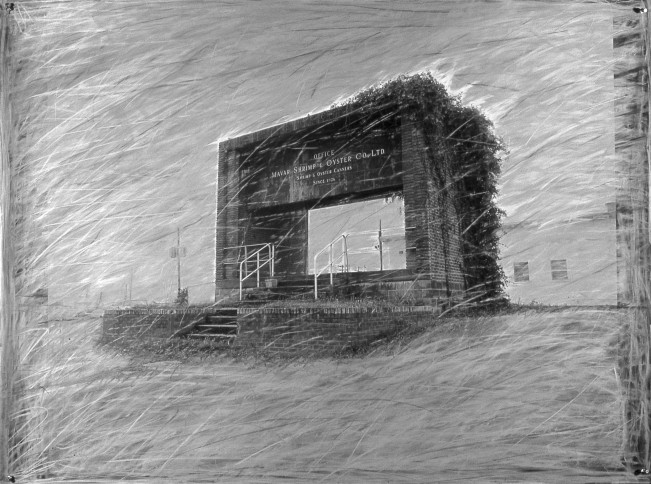
© Rick Dingus. Entrance, Gulf Coast, Mississippi, 1988-90. 35 x 47 inches. Gelatin
silver print with silver Prismacolor and graphite.
These makers can be described as haptic, from the Greek word haptos, which means, “laying hold of.” They are concerned with their bodily sensations and subjective experiences, and therefore pursue a kinesthetic avenue of production. Haptics actively insert themselves into the photographic process and become integrated into the picture experience. Their directorial and introspective way of working “touches” their subject matter to reveal the maker’s hand. Their primary concern is not a subject’s outer appearance, but the maker’s inner response to the subject—a picture of what is going on inside the artist’s fields of thought and emotion. Such questioning exemplifies a contemporary American frontier spirit of liberty that encourages individuals to contest the rituals and the rules of what constitutes photography.
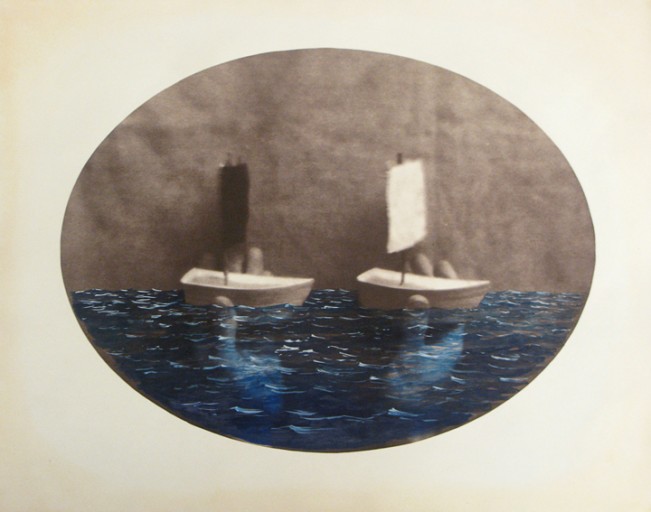
© Dan Estabrook, At Sea, from the series At Sea, 2007. 16 x 20 inches. Salt print with ink and watercolor.
The artists examined can be traced to the nineteenth century combination tableaux constructed by Oscar G. Rejlander and Henry Peach Robinson to the turn of the century Pictorialists, such as Edward Steichen, Frank Eugene, and Gertrude Käsebier, through twentieth-century artists that include Hannah Höch, John Heartfield, Man Ray, László Moholy-Nagy, William Mortensen, Henry Holmes Smith, and Wallace Berman. The influence of Robert Rauschenberg, Andy Warhol, POP Art, and the 1960s zeitgeist is evident in the works of influential makers featured in the exhibition such as Thomas Barrow, Judith Golden, Robert Heinecken, Les Krims, Duane Michals, Vik Muniz, Bea Nettles, Joyce Neimanas, Holly Roberts, Clarissa T. Sligh, Keith Smith, Mike and Doug Starn, Jerry N. Uelsmann, Todd Walker, and Joel-Peter Witkin.
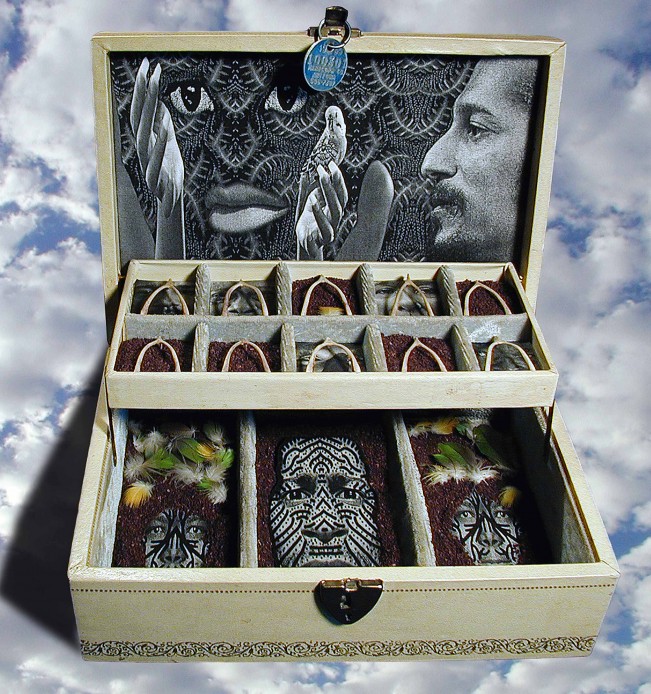
© Stephen Marc. Untitled (Assemblage Jewelry Box) from the series Soul Searching, 2000. 7-1/4 x 7-1/4 x 10-1/4 inches. Electrostatic prints with coffee, chicken wishbones, Senegal parrot feathers, and a dog tag.
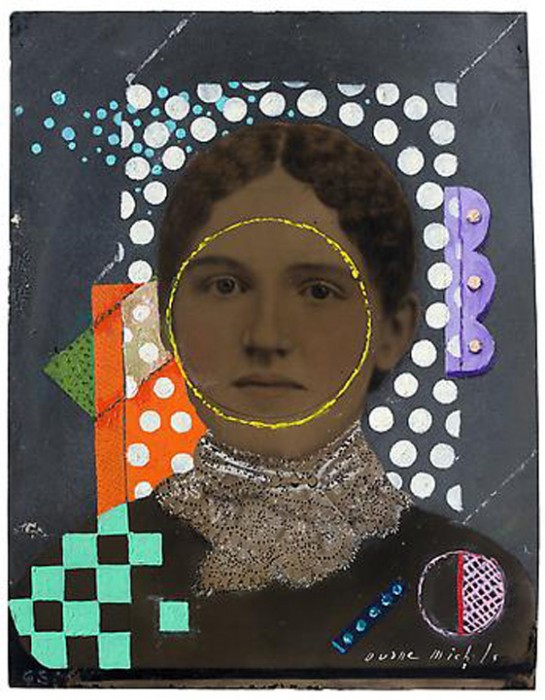
© Duane Michals, The Unretouched Beauty, 2012. 10 x 7-7/8 inches. Tintype with hand-applied oil paint. Courtesy of DC Moore Gallery, New York
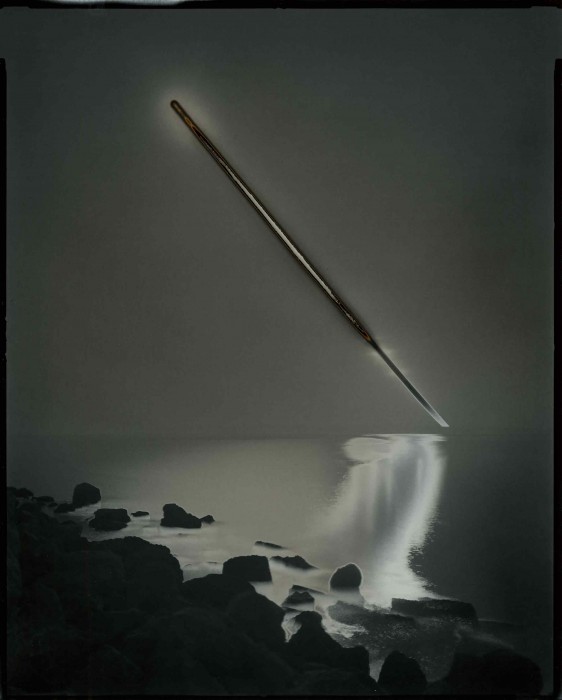
© Chris McCaw. Sunburned GSP#676 (San Francisco Bay), 2012. 20 x 24 inches. Gelatin silver paper negative.
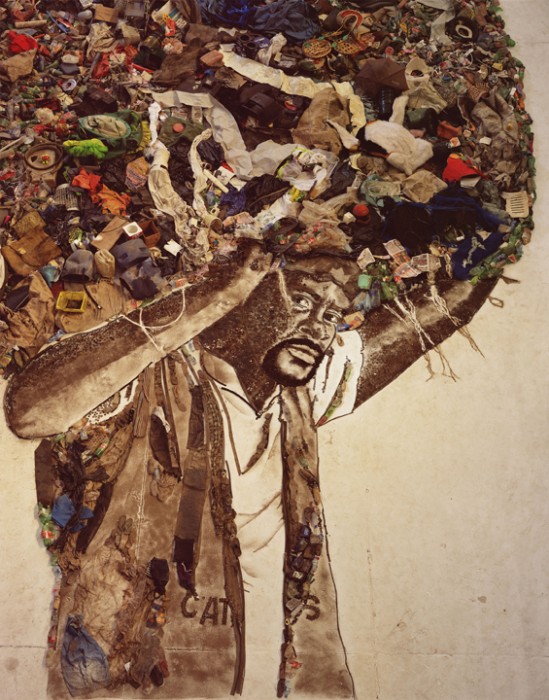
© Vik Muniz. Atlas, Carlão, from the series Pictures of Garage, 2008. Art © Vik Muniz/Licensed by VAGA, New York, NY
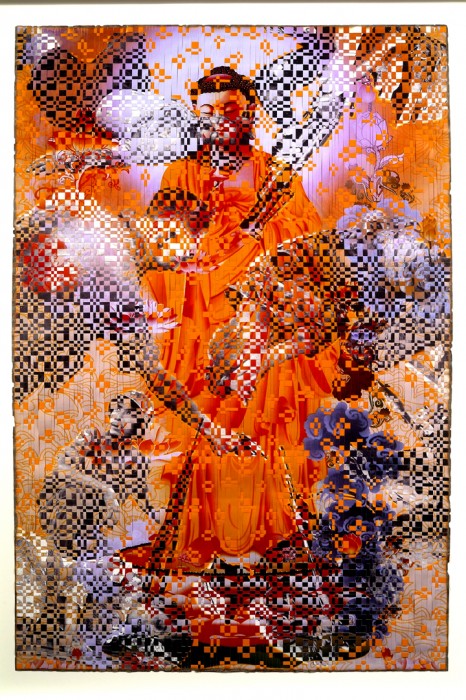
© Dinh Q. Lê. Fallen Angels, 2006. 70 x 48-1/4 inches. Chromogenic color prints and linen tape. Courtesy of the Shoshana Wayne Gallery, Santa Monica, CA.
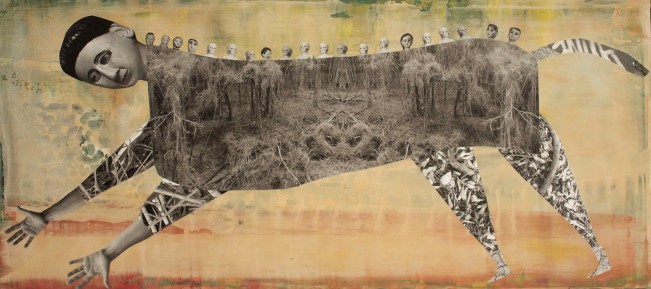
© Holly Roberts. Mother With Babies (on her back), 2009. 16 x 26 inches. Mixed media (acrylic on panel)
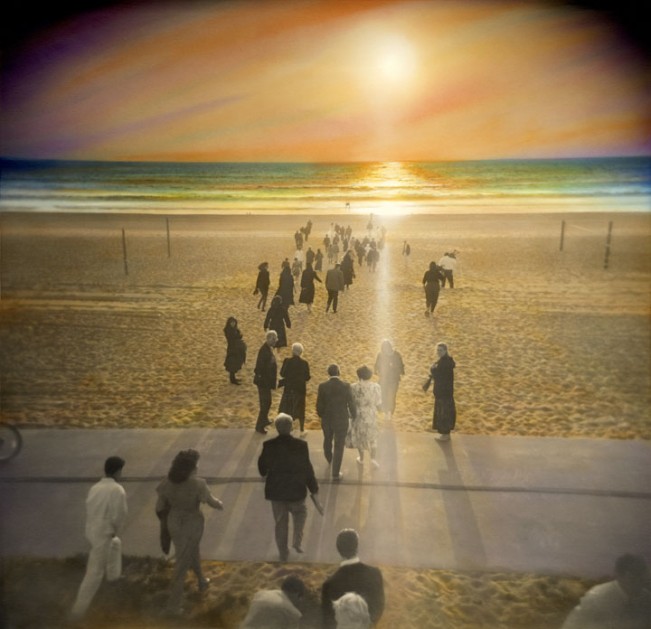
© Ted Orland. Leaving Los Angeles, 1991. 15×15 inches. Hand-colored gelatin silver print. Courtesy of the Ansel Adams Gallery.
Posts on Lenscratch may not be reproduced without the permission of the Lenscratch staff and the photographer.
Recommended
-
Ragne Kristine Sigmond: Portraits of Painterly LightDecember 2nd, 2025
-
Mary Pat Reeve: Illuminating the NightDecember 1st, 2025
-
Ricardo Miguel Hernández: When the memory turns to dust and Beyond PainNovember 28th, 2025
-
Pamela Landau Connolly: Columbus DriveNovember 26th, 2025
-
MATERNAL LEGACIES: OUR MOTHERS OURSELVES EXHIBITIONNovember 20th, 2025

